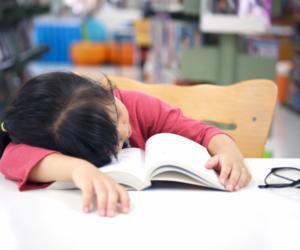Do I Have Insomnia?

Do you find it difficult to fall asleep after hitting the bed? Do you get up often in between during the night and struggle to get back to slumber? Do you get up much before the Sun’s rays hits the clouds? Do you feel tired the entire day without a refreshing sleep at night? All of the above are clear signs of a sleep disorder called insomnia. This disorder can affect one’s performance in work and also the quality of life.
Insomnia is categorized into two basic types:
- Primary insomnia – In this condition, insomnia is not caused as a result of any health issue.
- Secondary insomnia – In this form, insomnia is caused as a result of an underlying health issue, like depression, arthritis, or cancer.
Basically, the normal amount of sleep required differs depending on the individual. Some may be able to function normally with just three to four hours of sleep, while some others may require more than six hours.
Some of the most common causes of poor sleep are:
- Stress
- Illness
- Physical troubles, like breathlessness, leg cramps, indigestion, and hot flushes
- Anxiety
- Depression
- Sudden changes in lifestyle, like jet lag or a change in work shift
- Environmental factors like noise and light
- Certain medications
One can recognize insomnia by some more characteristic symptoms, like tiredness during daytime, irritability, and problems with memory and concentration.
Developing good and healthy sleeping habits is the best remedy for this sleep disorder. Sleeping pills may be recommended if sleeplessness in the night affects the functioning during the daytime. One should avoid taking over-the-counter medications for sleeping as they may have side effects. They also tend to become less effective over a period of time.
If it is chronic form of insomnia, the underlying health issue that may lead to this condition should be identified. Treating the illness often controls insomnia. Behavioral therapy may be recommended if poor sleep continues affecting the person. Some other alternative therapies that may be useful in alleviating the symptoms include relaxation exercises, reconditioning, online e-therapy, and sleep restriction therapy.
Try to develop some good sleeping habits like:
- Sleeping at the same time every day
- Reduce the intake of caffeine and alcohol late in the day
- Have regular exercise
- Avoid a heavy meal in the evening
- Try to relax before sleeping













